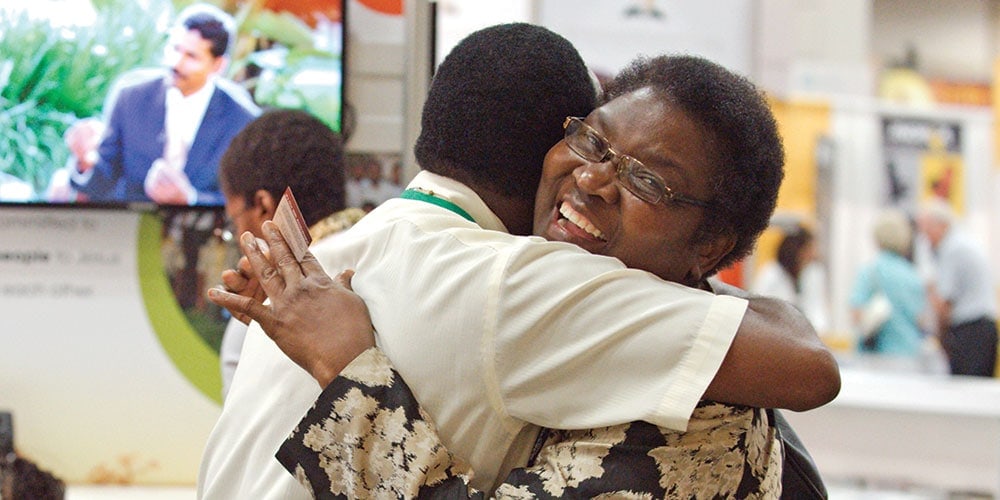
editor-at-large, Adventist Review
In a famous Peanuts cartoon, Lucy says to her opponent, Snoopy, “There are times when you really bug me, but I must say there are times when I feel like giving you a big hug.”
Often life is like that. With those with whom we move the closest, we tend to be the roughest. It doesn’t take much time or effort to love a stranger a thousand miles away; in fact, I may even make a large donation for some charity’s efforts to help that person. Between a husband and wife, though, there are times we bug each other; but given the permanency of love, the bug must yield to the hug.
To us as Seventh-day Adventists, Peter has a counsel on the need and the power of love: “Finally, all of you be of one mind, having compassion for one another; love as brothers, be tenderhearted, be courteous; not returning evil for evil or reviling for reviling; love as brothers, be tenderhearted be courteous; not returning evil for evil or reviling for reviling, but on the contrary blessing, knowing that you were called to this” (1 Pet. 3:8-9, NKJV*).
What does this passage say to us?
Be of one mind, having compassion for one another. By “one mind” it does not mean that God expects us to have a uniformity of mind. While we may differ in how we think or speak, we must do so compassionately. Where there is a spirit of compassion—a common passion between participants in a discussion, for example—there will be a spirit of understanding the other and trying to coalesce with the other.
Love as brothers and sisters. When we read the definition of love in its finality as given in 1 Corinthians 13, we do not see a picture of hostility, anger, or disrespect. Love finds its fullest description only at the cross—yielding for the other, respecting the other, and sacrificing the self. Brothers and sisters do not compete with each other but complement each other for the common cause of love.
Be tenderhearted and courteous. Tenderness and courtesy provide a reliable cushion to express opinions that may be at variance with those of others. The principle “turn the other cheek also” is another way of saying that even in the midst of hurt, the Christian call is to maintain tenderness.
Be a blessing. One of the most dangerous temptations in the life of collective conversation is not rejecting but reviling the other’s opinion. The other side of the coin is just as dangerous: holding to one’s opinion without any attempt or willingness to appreciate a differing standpoint. In the conflict that this paradox poses, the apostle says, choose instead to be a blessing.
The Christian life is a call to be a blessing: to reach out to the other; to understand the other’s point of view without minimizing that individual; to embrace the other in order that the journey to the kingdom can take in the whole community of faith. To embrace each other as brothers and sisters in the love of Christ and to remain in that embrace is far more important than winning or losing a point. Ultimate victory is the community of faith.
* Texts credited to NKJV are from the New King James Version. Copyright © 1979, 1980, 1982 by Thomas Nelson, Inc. Used by permission. All rights reserved.